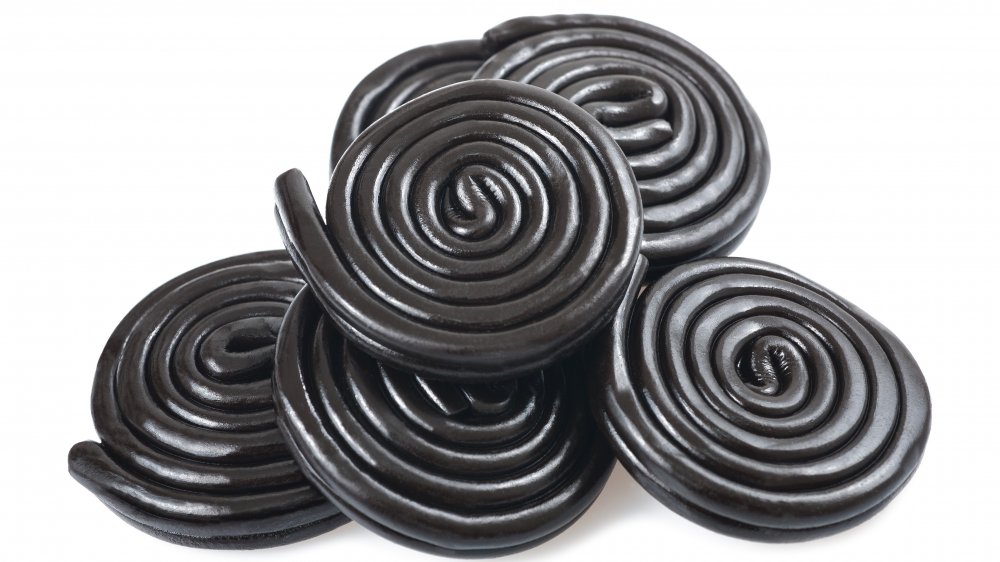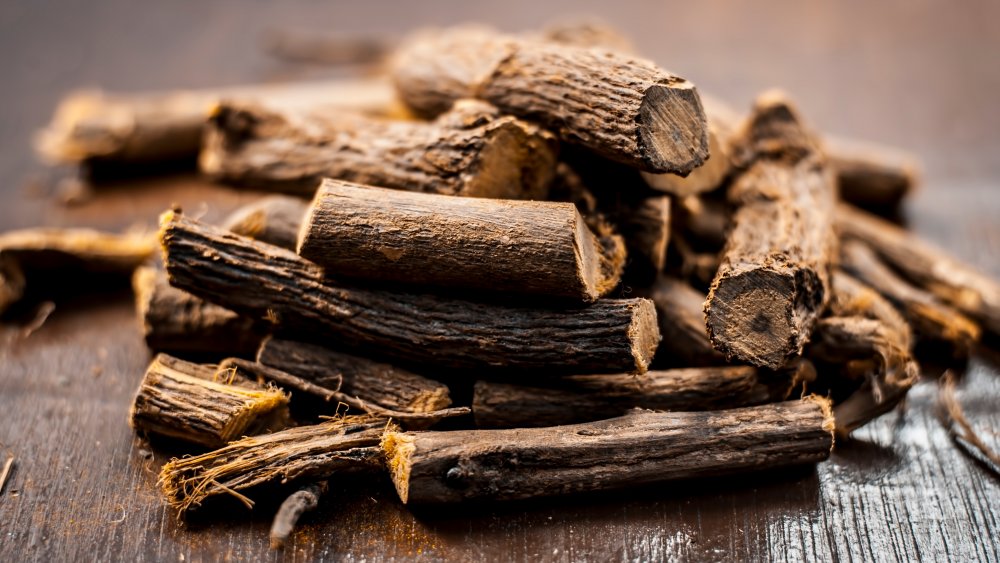The Real Reason So Many People Hate The Taste Of Black Licorice
When it comes to candy, there are few preferences more polarizing than black licorice. While some love the flavor, others find it absolutely disgusting. But what you might not know is that whichever side you land on might have more to do with your genetics than your upbringing. According to Marcia Pelchat, an associate member of the Monell Chemical Senses Center in Philadelphia, it's likely that your response to the taste of licorice is programmed into your genes, in much the same way that some people are genetically predisposed to think cilantro tastes like soap (via NBC News).
However, flavor isn't just determined by taste but by smell as well, and smell preferences seem to be learned. So, if just a whiff of anis, fennel, or ouzo turns your stomach, that likely has more to do with a negative memory associated with the smell than it does your genes. But, whether you love it or hate it, it might still be wise to limit your licorice consumption if you're concerned about heart health.
The potentially dangerous health impacts of eating too much black licorice
Not unlike its flavor profile, the health implications of eating licorice are polarizing. Licorice root has been shown to have antioxidant, anti-inflammatory, and antimicrobial properties (via Healthline). In fact, early research shows licorice root having positive effects on upper respiratory infections, ulcers, and impaired digestion. However, before you rush off to buy massive amounts of the stuff, you should consider a few things first.
Black licorice contains glycyrrhizin, which is what gives the candy its flavor (via Epicurious). Unfortunately for licorice lovers, glycyrrhizin impacts the body's potassium levels, and even just the amount in licorice candy can be enough to cause those levels to drop dangerously low, which can lead to high blood pressure, swelling, and even heart arrhythmia (via Mental Floss). According to the FDA, this risk is higher for people 40 and older, particularly those with a history of heart disease, who could wind up in the hospital after eating just two ounces of black licorice a day for two weeks. So, if you fall under this category, it's smart to limit your consumption of licorice and pay attention to any signs of low potassium in order to reduce the risk of these effects.

